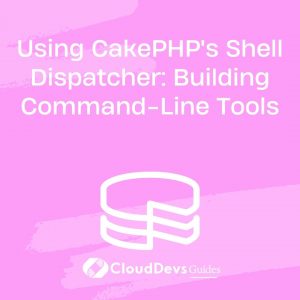Hire Senior CakePHP Developers from Your Local Time Zone within 24 Hours
Access senior CakePHP developers from our 8000+ pre-vetted Latam-based talent pool.
CloudDevs provides a comprehensive solution for hiring top-notch CakePHP developers, with access to a pool of over 8000 highly-vetted senior professionals. Our platform ensures seamless collaboration and expertise by offering exclusive access to elite CakePHP developers from your local time zone.
With a 7 day risk free trial

Our CakePHP Developers
Our top talents come from world leading companies
Fabio
Development of trading systems Ex-Bancolombia


Matheus
Machine Learning Engineer Ex- Banco do Brasil


Jair
Senior Machine Learning Engineer Ex-Grupo Boticário


Renan
Software Engineer Ex-Microsoft


Icaro
Quality Analyst Ex-Ypê


Deyber
Software Developer Ex-Pragma


Carlos
MLOps Engineer Ex-KLYM


Pedro
System Analyst Trainee Ex-Wipro




Melissa B
Founder


Jason Dong
Co-CEO, Founder

Anthony E
Co-Founder
How to Hire CakePHP Developers
through CloudDevs?
3 easy steps to hire CakePHP developers in 24 hours



1. What is CakePHP?
CakePHP is an open-source web application framework for PHP, following the MVC (Model-View-Controller) pattern. It divides applications into three components: the Model handles data logic, the View manages the presentation, and the Controller mediates between them. This separation simplifies maintenance and scalability. Models handle data interactions and relationships, Views render the user interface, and Controllers process requests, coordinating data flow. With “convention over configuration,” CakePHP reduces manual setup by providing default conventions and its Object-Relational Mapping (ORM) system lets developers use PHP objects for database interactions.
Moreover, security is a priority in CakePHP, and thus, it guards against vulnerabilities like SQL injection and XSS attacks. It aids validation, authentication, and authorization. Accordingly, CakePHP offers a structured, secure, and efficient framework for developing web applications.
Components in CakePHP’s MVC architecture
-
Model: The model component handles the data-related logic of the application. It deals with tasks such as data validation, querying databases, and representing data structures. Models in CakePHP allow you to define relationships between different data entities, making it easier to work with complex data structures.
-
View: The view component handles the presentation and user interface of the application. It is responsible for rendering data and providing an interface for users to interact with the application. In CakePHP, views are usually written using a templating language that allows you to embed dynamic data within HTML.
-
Controller: The controller component acts as an intermediary between the model and the view. It processes user requests, interacts with the model to retrieve or modify data, and selects the appropriate view to render the response. Controllers are responsible for controlling the flow of the application and deciding which actions to take based on user input.
Find out more on CakePHP by visiting our guides here.
2. What is CakePHP used for?
Though you already know that CakePHP is an open-source web application framework for PHP, you might still wonder what aspect it is used for in web application development.
Thus, CakePHP is used for developing web applications using the PHP programming language. It provides a structured and efficient framework that simplifies building dynamic and interactive websites or web-based software. Developers use CakePHP to create a wide range of applications, including:
-
Websites: CakePHP is often used to build traditional websites, from personal blogs to corporate informational sites. It provides tools for handling content presentation, user authentication, and data management.
-
Web Applications: More complex than websites, web applications involve user interactions and data processing. CakePHP’s MVC architecture aids in separating concerns and organizing code, making it suitable for applications like online marketplaces, project management tools, and customer relationship management systems.
-
E-commerce Platforms: CakePHP can power e-commerce websites and platforms, enabling features such as product catalogs, shopping carts, payment gateways, and order processing.
-
Content Management Systems: With its capabilities for managing data, CakePHP is used to build CMS platforms that allow users to create, edit, and manage digital content.
-
Social Networks: For developers looking to create social networking sites, CakePHP can be a foundation for implementing user profiles, friend connections, and activity feeds.
-
Online Communities and Forums: CakePHP’s structure and flexibility make it suitable for building discussion forums, community platforms, and message boards.
-
Custom Web Applications: Developers can build custom applications tailored to specific business needs, such as inventory management systems, reporting tools, and employee portals.
-
Educational Platforms: CakePHP can be used to create learning management systems and online education platforms.
-
Real-Time Applications: Though not its primary use case, CakePHP can also be used to create real-time applications when combined with technologies like WebSockets.
-
Application Programming Interfaces (APIs): CakePHP can serve as the backend for creating APIs that allow other applications to interact with your data and services.
Notably, CakePHP is used wherever web development is required in the modern innovative world, offering a structured and efficient way to create feature-rich and secure web applications. Its capabilities span from simple websites to complex, data-driven applications, catering to a wide range of development needs.
3. What is the difference between PHP and CakePHP?
Comparing PHP with CakePHP unveils the distinction between a versatile scripting language and a dedicated web application framework. PHP is a cornerstone for web application development that empowers developers to create dynamic web pages and server-side functionalities with its flexible syntax. On the other hand, CakePHP, built upon the primary foundations of PHP, elevates the development process by introducing a structured environment, predefined conventions, and a Model-View-Controller architecture.
Further, though PHP and CakePHP are related, they serve different purposes in the realm of web development.
Features of PHP:
-
General Purpose: PHP is a versatile programming language that can be used for a wide range of applications beyond web development, including command-line scripting and desktop applications.
-
Language: PHP is a scripting language primarily used for web development. It’s executed on the server side and is embedded within HTML to create dynamic web pages.
-
No Framework: PHP itself is not a framework; it’s a language that allows developers to write server-side code to handle tasks like database interactions, form processing, and more.
-
More Control: Working directly with PHP gives developers more control over the implementation details and allows them to build applications tailored to their specific needs.
-
Learning Curve: While it’s relatively easy to get started with basic PHP scripting, building large and complex applications without a framework can be challenging and may lead to less organized code.
Features of CakePHP:
-
Framework: CakePHP is a specific web application framework built using PHP. It provides a structured environment for developing web applications by offering predefined components, patterns, and conventions.
-
MVC Architecture: CakePHP follows the Model-View-Controller (MVC) architectural pattern, promoting the separation of concerns and organized code structure.
-
Abstraction: CakePHP abstracts many common web development tasks, such as database interactions and form handling, through its Object-Relational Mapping (ORM) and other built-in features.
-
Faster Development: By providing ready-to-use tools and conventions, CakePHP accelerates development and reduces the need to reinvent the wheel for common tasks.
-
Learning Curve: Learning CakePHP requires understanding its conventions and the MVC architecture, but it can lead to faster development and more maintainable code in the long run.
-
Built-In Security: CakePHP includes built-in security measures, helping developers avoid common vulnerabilities such as SQL injection and Cross-Site Scripting.
Nevertheless, PHP is the programming language used for web development, while CakePHP is a framework built with PHP to streamline and structure the development of web applications. CakePHP simplifies many common tasks and enforces coding conventions, making development faster and more maintainable, especially for medium to large projects.
4. Which is better CakePHP or Laravel?
When we take a moment to compare CakePHP with Laravel, it gives us a chance to compare two prominent PHP frameworks, each catering to distinct development preferences. cakePHP embraces simplicity, and convention, providing an efficient environment for rapid application development. It also has a special approach called the “batteries-included” approach which streamlines coding through predefined structures, while its security features bolster protection against common vulnerabilities.
Laravel on the other hand, radiates modernity with its expressive syntax and rich ecosystem. Hence, Laravel empowers developers with tools such as Eloquent ORM, Artisan CLI, and Vue.js integration. It is quite crucial to also note that Laravel’s active community fosters abundant resources while CakePHP’s user-friendly learning curve makes it a compelling choice for those seeking quick proficiency.
Both these frameworks have their strengths and weaknesses, and choosing which is better than the other depends on various factors which include your project’s requirements at its peak. We will do a little comparison between the two frameworks to determine which suits your software development goals and requirements.
Features of CakePHP:
-
Simplicity: CakePHP’s “convention over configuration” approach and built-in features allow for rapid development and less boilerplate code.
-
Structured: It enforces a clear structure through its MVC architecture, making it suitable for projects where organization is crucial.
-
Security: CakePHP has robust security features out of the box, helping to mitigate common web vulnerabilities.
-
Ease of Learning: It’s often considered easier to learn for beginners due to its simple and intuitive conventions.
Features of Laravel:
-
Elegant Syntax: Laravel’s expressive syntax and elegant code make it enjoyable to work with.
-
Rich Ecosystem: It has a vast ecosystem with a wide range of packages and extensions available via Composer, contributing to increased productivity.
-
Community Support: Laravel has a large and active community that provides extensive documentation, tutorials, and resources.
-
Modern Features: It incorporates modern features like a powerful ORM, Artisan CLI, real-time broadcasting, and task scheduling.
-
Vue.js Integration: Laravel comes with Vue.js integration out of the box, making it easier to build dynamic front-end interfaces.
As mentioned previously, the choice between CakePHP and Laravel depends on your specific project requirements and your familiarity with the frameworks. If you are looking for a framework that offers simplicity, rapid development, and security, CakePHP might be suitable. If you are more inclined towards an elegant syntax, a rich ecosystem, and modern features, Laravel could be a better fit. It is recommended to assess your project’s needs and the strengths of each framework to make an informed decision.
5. What is the difference between CodeIgniter and CakePHP?
CodeIgniter is a lightweight open-source web application framework for PHP, designed to enable developers to build dynamic web applications with simplicity and flexibility. It also follows the Model-View-Controller (MVC) pattern and is known for its minimalistic approach, allowing developers to choose and integrate components as needed.
Hence, as previously discussed above, CakePHP is also an open-source PHP web application framework that emphasizes convention over configuration. It employs the MVC architecture to provide a structured and standardized environment for developing web applications. It comes with built-in features, such as an Object-Relational Mapping (ORM) system and security tools, that accelerate development while maintaining code quality.
CodeIgniter and CakePHP are both PHP frameworks that assist developers in building web applications, but they differ in several key aspects including;
Architecture:
-
CodeIgniter: CodeIgniter follows the Model-View-Controller (MVC) architectural pattern but offers a relatively lightweight approach. It provides a simple and flexible structure, allowing developers to mix and match components as needed.
-
CakePHP: CakePHP also adheres to the MVC pattern but enforces a stricter structure. It provides predefined conventions and guidelines for naming and structuring components, promoting a more standardized approach to development.
Learning Curve:
-
CodeIgniter: Known for its minimalistic and intuitive design, CodeIgniter is often considered easier to learn and suitable for beginners or developers who prefer a less opinionated framework.
-
CakePHP: While not overly complex, CakePHP can have a slightly steeper learning curve due to its more opinionated structure and conventions. However, these conventions can ultimately lead to more streamlined and maintainable code.
Features and Components:
-
CodeIgniter: CodeIgniter is lightweight and allows developers to add components as needed, giving them more control over which features to include in their projects.
-
CakePHP: CakePHP provides more built-in features and tools out of the box, such as a powerful ORM, security features, and scaffolding for rapid development.
Community and Ecosystem:
-
CodeIgniter: CodeIgniter has a community and ecosystem, but it may not be as extensive as some other frameworks. However, this can also mean that it is easier to find help and resources that are directly relevant to the framework’s core components.
-
CakePHP: CakePHP has a larger and more established community, offering a wealth of documentation, plugins, and extensions that can help speed up development.
Customization and Flexibility:
-
CodeIgniter: CodeIgniter’s lightweight nature makes it very flexible and suitable for small to medium-sized projects where customization is key.
-
CakePHP: CakePHP’s conventions and structure may provide less flexibility in terms of customizing the framework’s core behavior, but they can make development faster and more standardized.
Accordingly, CodeIgniter is often favored for its simplicity and flexibility, making it a good choice for smaller projects or developers who want more control over the components they use. CakePHP offers a more opinionated and feature-rich approach, which can lead to faster development and greater consistency but may have a slightly steeper learning curve. The choice between the two depends on the nature of your project and your development preferences.
6. What companies use CakePHP?
-
Hyundai: The automotive giant used CakePHP for its corporate website, showcasing the framework’s versatility in handling large-scale projects.
-
Express: The British fashion retailer’s website was built using CakePHP, highlighting the framework’s ability to handle e-commerce platforms.
-
HopStop: Before its acquisition by Apple, HopStop used CakePHP for its public transit navigation website and app.
-
Endurance International Group: This company, which provides web hosting and online services, has used CakePHP in some of its projects.
-
SweetRush: An e-learning solutions provider, SweetRush has used CakePHP to build custom learning management systems and other web-based training platforms.
-
Zumba Fitness: Zumba’s online platform, including its class finder and community features, was developed using CakePHP.
-
Freelancer.com: The popular freelancing platform has been reported to have used CakePHP for parts of its website.
-
Yelp: While not its primary framework, Yelp has reportedly used CakePHP for specific components of its website.
-
Curbed: Curbed, a real estate and urban lifestyle website was known to have used CakePHP for its website development.
-
Panasonic: Some divisions of Panasonic have utilized CakePHP for building web applications.
7. How popular is CakePHP?
CakePHP has a solid history in the PHP web development landscape and has maintained a dedicated user base over the years. While it might not be as popular as some other PHP frameworks like Laravel or Symfony, it still holds its place as a viable option for certain types of projects. The popularity of frameworks can vary based on factors such as community engagement, job demand, and industry trends.
CakePHP has a strong community and active development, which is an indicator of its ongoing relevance. It also offers a balance between convention and flexibility, making it appealing to developers who value structure and productivity.
Some reasons for its constant popularity include;
-
Solid History and Dedicated User Base
CakePHP has been around for quite some time and has built a reputation in the PHP web development ecosystem. This history showcases its stability and maturity as a framework. Additionally, it has maintained a dedicated user base, implying that developers who have used CakePHP have found value in it and continued to support its usage.
-
Position in Popularity
While CakePHP might not be as widely recognized or used as some other PHP frameworks like Laravel or Symfony, it doesn’t diminish its significance. Popularity can vary based on different factors, and some frameworks tend to gain more attention due to various reasons such as marketing efforts or industry trends.
-
Viability for Specific Projects
CakePHP still remains a viable choice for certain types of projects. The choice of framework depends on the specific requirements of a project. CakePHP’s approach might align better with certain development scenarios or application types, making it a preferred choice for those situations.
-
Factors Affecting Popularity
A framework’s popularity is influenced by several factors. These include community engagement meaning how active and supportive the user community is, job demand meaning how many job listings or opportunities are available for developers skilled in that framework, and industry trends meaning which frameworks are gaining momentum based on technological advancements.
-
Strong Community and Active Development
CakePHP’s strong and active community is an indicator of its relevance. A vibrant community often contributes to the framework’s growth, updates, and availability of resources such as tutorials, plugins, and extensions. Active development means that the framework is continuously improving, adapting to new technologies, and fixing bugs.
-
Convention and Flexibility
CakePHP strikes a balance between convention and flexibility. This means that it provides a structured approach that encourages consistent development practices and reduces decision-making overhead. However, it also allows developers the flexibility to deviate from conventions when necessary, giving room for customization.
8. How can I hire CakePHP developers?
To hire a CakePHP developer, start by defining your project’s requirements and scope. Post a clear job description on online platforms, highlighting the necessary skills and experience. Review candidates’ portfolios, assess their expertise in CakePHP, and conduct interviews to gauge their understanding of the framework and problem-solving abilities. Prioritize candidates who have worked on similar projects and demonstrate strong PHP skills. Finally, select a developer who aligns with your project’s goals and fits well within your team dynamic.
If you are looking for CakePHP developers from Latin America, look no further than Cloud Devs. At Cloud Devs, we offer a talent pool of over 8,000 developers, and our developers are guaranteed to provide the best services without delay. We also offer a seven-day free trial option where you are given the chance for a complete refund if you are not satisfied with our services.
9. What does a CakePHP developer do?
A CakePHP developer plays a multifaceted role in the realm of web application development. Their primary focus revolves around harnessing the capabilities of the CakePHP framework to craft robust and efficient web applications. This involves adeptly working with the Model-View-Controller (MVC) architecture that CakePHP is built upon. They meticulously design and construct various components, including models that define data structures and relationships, views that elegantly render user interfaces, and controllers that seamlessly manage user interactions and application logic.
The developer’s proficiency lies in translating business requirements into functional code. They harness the power of PHP within CakePHP’s framework to implement intricate data management processes, encompassing tasks such as creating, retrieving, updating, and deleting records in the application’s underlying database. This is often achieved through the framework’s Object-Relational Mapping (ORM) system, which enables the representation of database tables as PHP objects.
In addition to building the application’s core functionalities, CakePHP developers are vigilant custodians of security. They meticulously incorporate security practices, guarding against vulnerabilities like SQL injection, Cross-Site Scripting (XSS), and other potential threats. Through thorough testing, debugging, and quality assurance, they ensure that the application performs reliably and seamlessly, meeting the expectations of both users and stakeholders.
Furthermore, these developers are adept at integrating third-party components and libraries, extending the application’s capabilities beyond the confines of the framework. Collaboration is a key aspect of their role, as they work closely with cross-functional teams to align technical implementation with design aesthetics and business objectives.
10. How to write a CakePHP job description
Crafting a compelling CakePHP job description involves outlining the key responsibilities and qualifications for the role. Begin by specifying the project’s scope, desired outcomes, and any specific features to be developed. Highlight the need for expertise in CakePHP, including familiarity with its MVC architecture, database interactions, and security measures. Emphasize skills in PHP programming, experience with version control such as Git, and knowledge of frontend technologies like HTML, CSS, and JavaScript. Mention any additional tools or frameworks relevant to your project. Lastly, convey the collaborative nature of the role and the opportunity to contribute to the creation of dynamic and secure web applications using CakePHP.
11. What’s the cost of hiring CakePHP developers?
The cost of hiring CakePHP developers can vary based on factors such as their experience level, location, project complexity, and engagement type. In regions with higher living costs, such as North America or Western Europe, rates might be relatively higher. In contrast, hiring from regions with a lower cost of living, like parts of Asia or Latin America, could offer more budget-friendly options without compromising skills. Furthermore, freelancers may have hourly rates, while dedicated developers or teams might involve fixed monthly costs. It’s essential to weigh these considerations against your project requirements to determine the most suitable and cost-effective hiring solution for your CakePHP development needs. Learn more about the cost of hiring CakePHP developers on our salary guide here.
At CloudDevs, it usually takes around 45 dollars to 70 dollars per hour to hire a highly skilled and well-experienced CakePHP developer from Latin America, from your time zone. Our company provides a pay-as-you-go option that enables you to hire developers from Latin America on a weekly basis without any minimum commitment.
Table of Contents
CakePHP FAQs
CakePHP is an open-source web application framework written in PHP. It follows the Model-View-Controller (MVC) architectural pattern and provides a structured environment for developers to create and manage web applications efficiently. With built-in conventions and features, CakePHP simplifies tasks like database interaction, routing, and security, allowing developers to focus on building robust and scalable applications.
CakePHP developers of several advantages for your web application development projects. Some of the benefits of hiring a CakePHP developer include:
- Framework proficiency
- Structured development
- Time efficiency
- Ability to customize
- Project scalability
- Quality assurance
- Long-term support
The salary of a CakePHP developer can vary widely based on factors such as experience level, location, and the complexity of the project. A Junior developer might earn around $40,000 – $70,000 in the United States, while in Asia, the starting salary for a junior developer is $15,000 – $35,000.
A Senior developer can earn up to $!50,000 in the United States per year, and about $100,000 in Asia and Latin America.
Initially, you can check from Linkedin, or other platforms that help you get connected with professional developers.
CloudDevs is an online platform that offers remote CakePHP developers from Latam, matching your time zone. Our pre-vetted developer pool and budget-friendly hiring process make CloudDevs one of the best places to hire CakePHP developers.
It is crucial to check for both technical skills as well as soft skills to ensure the developer you hire is proficient in both the CakePHP framework as well as effective collaboration.
Technical skills:
- CakePHP framework expertise
- Proficiency in PHP
- MVC Architecture
- Database Interaction
- Frontend Integration
Soft Skills:
- Problem-Solving
- Communication Skills
- Team Collaboration
- Time Management
All developers at CloudDevs are pre-vetted, and we ensure that you reach your software development goals with the support of our well-qualified developers. You can hire developers in less than 24 hours, and we also offer a 7-day risk-free trial, meaning that you can change the developer and get assigned a new one for your software development project.
Hire Highly Skilled CakePHP Developers from Your Local Time Zone Today!
Uncover proficient CakePHP developers from our handpicked assembly of over 8000 skilled professionals. At CloudDevs, we bring you a simplified approach to hiring top CakePHP talent, granting you access to adept developers aligned with your local time zone. Craft exceptional applications with confidence, powered by our dedicated CakePHP experts who transform your concepts into reality.














